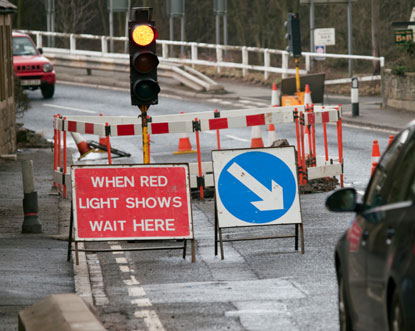Plans to give councils greater control of local transport spending could weaken transparency and accountability for public money, the Public Accounts Committee warned today.

Examining plans to give town halls more responsibility for deciding on local transport schemes, MPs said the government had not ‘thought through the risk’ that some projects could be jeopardised by the reform. If individual local authorities did not take ‘sufficiently strategic and joined-up decisions’, national priorities could be ignored, the PAC’s Funding for local transport report found.
Councils spent £8.5bn on transport in 2010/11, with around a quarter, £2.2bn, provided by the Department for Transport in grants. The rest was raised locally from council tax and parking levies, or came from the Department for Communities and Local Government’s formula grant.
Around £1.2bn of the DfT’s funding was intended for highways maintenance and small transport projects, but was not ring-fenced for this purpose. Councils could therefore spend the cash on a host of capital projects, including on schemes that were not related to transport. Ministers now plan to increase the amount free from a ring fence from 60% to 80% by 2015.
The department does not monitor what the unringfenced money is spent on. MPs said this meant there was ‘insufficient information’ on how the funding met the government’s objectives.
Increasing the amount councils were free to spend would leave the department unable to identify local project failures or ‘unacceptable deterioration in services’, the committee stated.
‘Implementing these changes may weaken the existing limited accountability and transparency arrangements,’ the report added.
The committee was also uncertain about how the greater autonomy would work in practice, particularly how ministers could ensure that important regional projects were funded.
‘We are not convinced that government has thought through the risks of devolving more control over the funding of major transport projects to a local level,’ committee chair Margaret Hodge said. ‘For example, the department is confident that local bodies will naturally co-operate to fund and implement projects. We believe this confidence may well be misplaced.
‘The risk is that local transport bodies, under severe financial pressure, will not take sufficiently strategic and joined-up decisions, threatening national or regional transport funding objectives.’
The committee urged the DfT to ‘clarify its processes’ to measure use of its funding against central objectives. It should also specify information for councils to provide so value for money could be assessed for transport spending.
However, the Local Government Association said the report’s ‘baseless speculation and insinuation about how councils spend transport funding’ was ‘a slap in the face’ to town halls.
Economy and transport board chair Peter Box added: ‘Councils know potholes and transport services are major doorstep issues and invest as much money as they are able, often subsidising what's available to them in transport funding and parking revenue with money from other budget areas.
‘Government should be focusing on giving councils the proper funding to invest in the resurfacing projects which our crumbling road network desperately needs, not bringing in a range of unnecessary targets and bureaucracy, with the extra drain on councils' already stretched resources this will entail.’
The DfT said devolution of local transport schemes would ‘give real power to local communities to make locally accountable decisions, alongside a framework that ensures all areas have arrangements in place to deliver value for money for taxpayers’.
A spokeswoman added: ‘We will therefore carefully consider the committee's recommendations and provide a full government response in due course.’






















